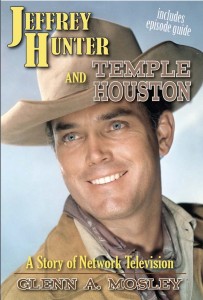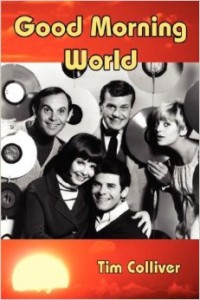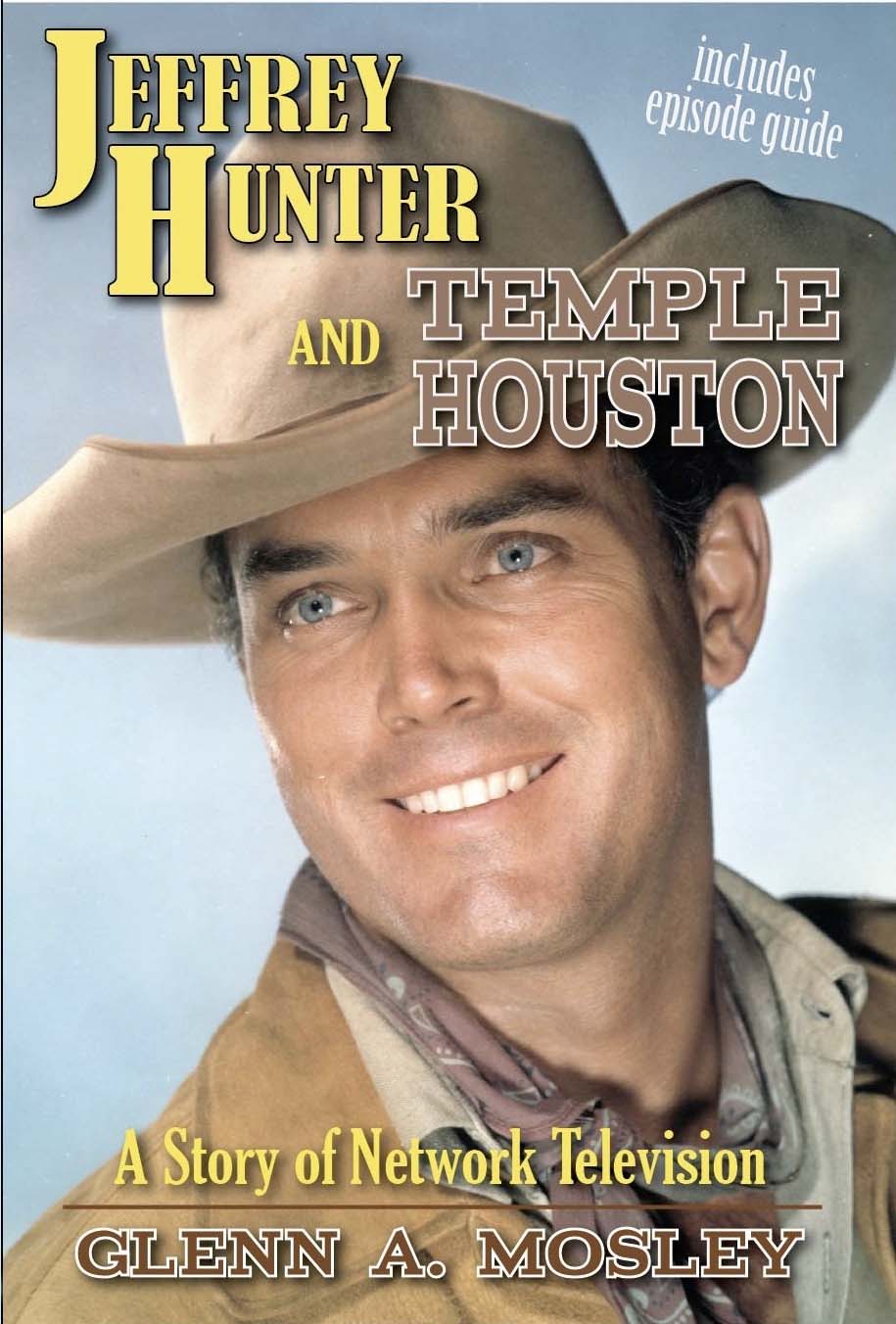 I love Bear Manor Media. They publish TV books that no publisher in their right mind ever would. Who else but Bear Manor would publish books about the western Temple Houston and the sitcom Good Morning World, two shows that barely survived for a single season each back in the 1960s? You could probably fit all the potential readers of those two books comfortably in a motor home for a dinner party. I’ve never seen either one of those two shows, but I still bought the books… another illustration of my raging, TV book addiction. Bear Manor Media and, to a lesser degree, McFarland & Co, are my pimps. But enough about me. Let’s talk about the books.
I love Bear Manor Media. They publish TV books that no publisher in their right mind ever would. Who else but Bear Manor would publish books about the western Temple Houston and the sitcom Good Morning World, two shows that barely survived for a single season each back in the 1960s? You could probably fit all the potential readers of those two books comfortably in a motor home for a dinner party. I’ve never seen either one of those two shows, but I still bought the books… another illustration of my raging, TV book addiction. Bear Manor Media and, to a lesser degree, McFarland & Co, are my pimps. But enough about me. Let’s talk about the books.
Jeffrey Hunter and Temple Houston: A Story of Network Television by Glenn A. Mosley is a mess of a book (though much better than his book about the TV series The Deputy). As the title suggests, the book isn’t quite sure what it’s about. Is it about Jeffrey Hunter? Is it about Temple Houston? Or is it about network television? Basically, it’s three lengthy magazine articles — one on the very short-lived Temple Houston, one on aborted The Robert Taylor Show, and one on actor Jeffrey Hunter’s disappointing career, stitched together into a thin, and yet very padded, book. But the stories of Temple Houston, and the never-aired Robert Taylor Show are fascinating and well-worth the time, and the $14.95 purchase price of this book, for any student of the television history.
The apt title for the book might have been A Perfect Storm of Bad Decisions. It’s the story of how Warner Brothers’ decision to replace the president of their TV division with actor/director Jack Webb, and NBC’s decision to cancel the drama The Robert Taylor Show four episodes into production without ever airing an episode, and the network’s decision to rush Warner Brothers & Four Stars’ Temple Houston into production to fill the void, doomed them all. Mosley sums it up in his introduction.
In making the decision in the manner that it did, NBC effectively sealed the fate of two television franchises. The Robert Taylor Show would never see the light of day and, in the end, Temple Houston hardly stood a chance. NBC, Warner Brothers, and even Four Star would all end up in weaker positions as a result […] Temple Houston has most often been dismissed as simply a failed, one-season western on television. Fair enough– so it was. But the story of Temple Houston is more than that; it is also the story of the intersection points betwen careers, Hollywood Studios, and network television.
And it’s a great untold story, one that neither NBC, nor Warner Brothers nor any other network or studio learned from… and were doomed to repeat many times over. 
The first 44 pages of this 121 page book (not counting the bibliography and index) chronicle the story behind the development and production Temple Houston, and its great stuff. I ate it up. Another ten pages later in the book cover the story of the never-aired Robert Taylor Show in more detail…and it’s also great stuff, maybe even more interesting than the Temple Houston story. Everything else in the book — the biography of Jeffrey Hunter, the episode guide to Temple Houston, the pointless rehash of Temple Houston episodes — is filler that doesn’t really convey much and often repeats material mentioned by the author before. But on the strength of the Temple Houston and Robert Taylor Show stories alone, I recommend this book for your TV reference book library.
Sadly, I can’t say the same for Good Morning World by Tim Colliver, who wrote this very thin, heavily padded book because the short-lived 1967 sitcom about a radio station inspired him to become a DJ. The problem is, the show just wasn’t very good and there wasn’t anything remotely interesting about it on any other level. As both Joby Baker, the long-forgotten star of the show, and the author of the book put it:
[Baker] also thought the scripts could have been better… a lot better.
“The reason I had trouble memorizig the lines is that they were horrible fucking lines.”[…]Throughout the course of the series, Baker thought the scripts were “corny” and the show “not really funny at times.” In all fairness, in looking back on the episodes now that they are on DVD, he was on to something.
Which begs the question, why write a book about a lousy show? Or better yet, why read one? My answer to both questions is: Don’t.
Note: I bought both of these books. They were not provided to me for review.

I was very high on GOOD MORNING WORLD as a kid, have revisited some episodes since (via the DVD release); and I don’t think it’s fair to say both that you’ve never seen it and “it wasn’t very good.” (In some cases that can be fair, common sense and other obvious elements are clues enough, but not here.) The reason why the book exists, and the DVD set, is because the show *is* actually fondly remembered by a good number of people. I’m not about to tell you it was a masterpiece, but it was a solid, funny, filmed-live workplace comedy, maybe indeed the only sitcom keeping the genre active between THE DICK VAN DYKE show and THE MARY TYLER MOORE SHOW, and if it hadn’t quite yet found a classic alchemy (i.e. HAPPY DAYS didn’t reckon with the Fonz until he caught fire; THE ODD COUPLE seemed labored until they retooled and brought it back to its live theatre roots), it had interesting enough elements — the setting and in particular the bounce-off between Ronnie Schell and Billy de Wolfe — that would almost certainly have coalesced in time. As to Joby Baker’s bitching about the lines, you have to take that with a beaker of salt; he was depressed, unhappy with the business and had one foot out the door before they began. I’m not guaranteeing you’d agree with me if you sampled the show — with a cult series affection is even a more subjective matter than usual — but GOOD MORNING WORLD did become a cult series for a reason. (The other filmed-live sitcom of that time, with a similar male triumvirate at its core, also worth DVD revival, is HEY, LANDLORD!)